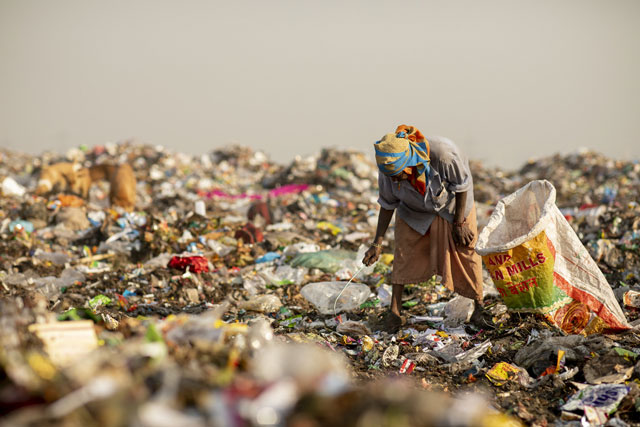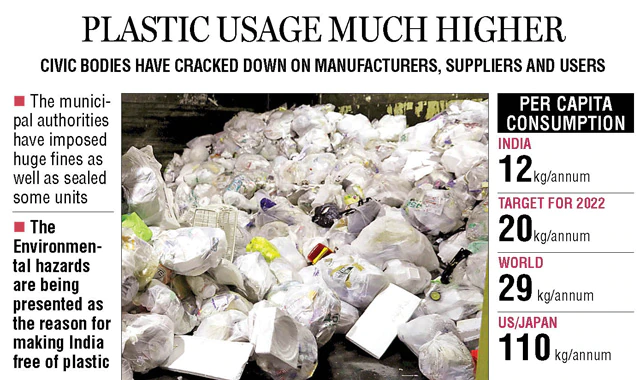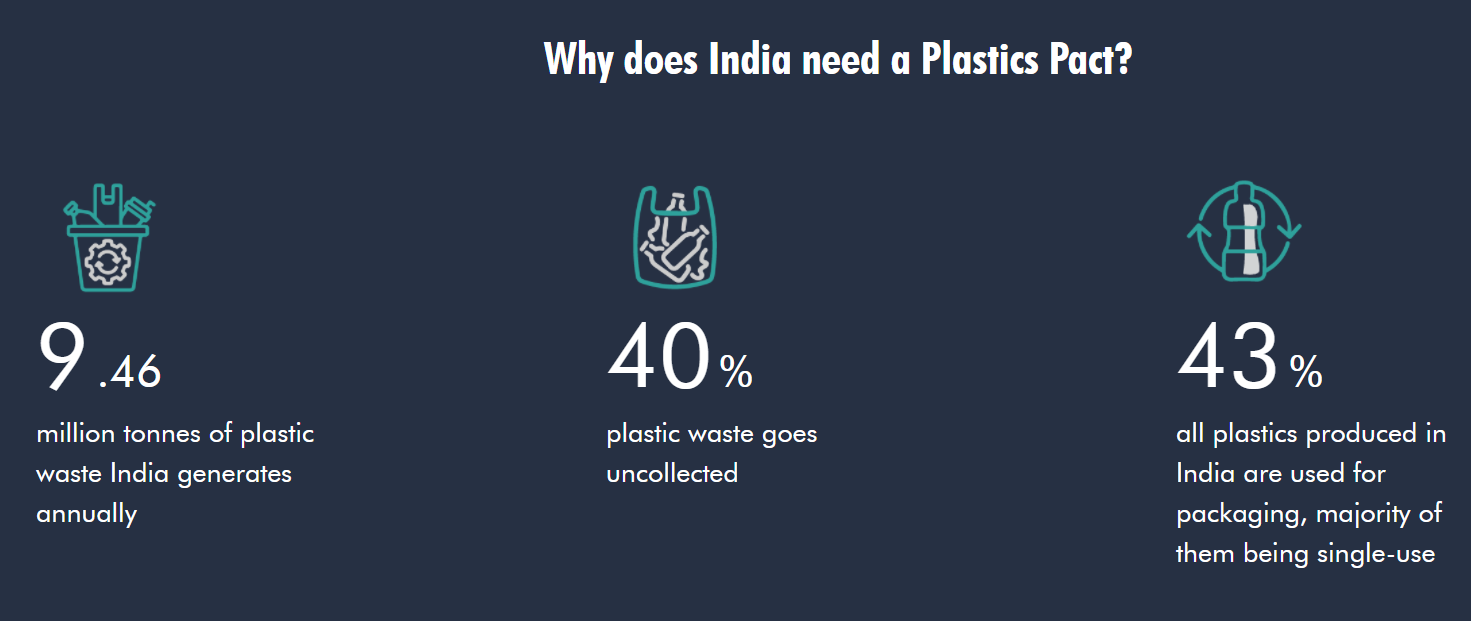Out of all the problems that this country is dealing with, do we think the plastic menace needed to be kept aside while it keeps strangling the fellow beings and continues to find its way in our food-chain?
A huge pile of 380 million tons plastic is produced every year worldwide, with India nearly contributing 3.3 million metric tons of plastic waste.
It is worthy to note that this gets generated to be used for a few minutes by humans while it lingers in our environment for centuries.
Plastic pollution has been an acknowledged cause of worry and therefore remains as one of the top priorities to be tackled with.
On these lines, Indian government has also banned the futuristic use of single-use Plastics effective from July 2022 by notifying the Plastic Waste Management Amendment Rules, 2021.
India has stressed on this curb as it piloted a resolution regarding the curb on Single-use plastics in fourth United Nations Environment Assembly held in 2019.
For better implementation on these guidelines, the Union government has setup a national-level task force and asked State and UTs to make significant strides and comply in this direction.
But the show-stealer of the Governments attempts to ramp up its fight against plastic, remains the India Plastic Pact that has been recently announced by Confederation of Indian Industry (CII).
The project, to be first pact in Asia will be launched in September 2021 at the CII Annual Sustainability Summit.
This has been undertaken with the help of WRAP, the global entity (UK based NGO) fueling this elimination drive in every country worldwide, with the first such pact launched in the U.K. in 2018.
Indian Plastic Pact is a bunch of business-led initiatives that aims to topple the prevailing plastic packaging value chain and transform it for all products.
To achieve this, everyone joins in from across the chain to implement practical solutions given so forth along with streamlined access to expertise and knowledge.
The four prominent targets of the pact framed in India are:
- Through promoting redesign and innovation, aim is to eliminate unnecessary and extra plastic packaging.
- Ensuring reusability or recyclability in packaging.
- Facilitate reuse and collection (only 9 per cent of the waste gets collected worldwide).
- Accelerate and increase the proportion of recycled content in plastic packaging.

Therefore, it tries to boost the demand for recycled content, bring-in the investments for recycling infrastructure or create jobs in the waste management.
There is significant involvement of the informal waste sector labor for the segregation, collection and even processing of plastic waste.
India for Environment: a necessity while addressing reality
Center for International Environmental Law has suggested that by 2050, GHGs from plastic alone can reach upto 56 gigatonnes, which is equal to 10-13% of the remaining carbon budget.
With the efforts to be planned by local organizations, it will further collaborate with the governments, businesses, and citizens for fulfilling the common vision and ambitious goals.
Apart from the visible gains from the scheme, to society as well as the country’s macro economy, once fulfilled the targets will induce the circularity in plastic use and help tackle pollution.
This can help cut significant greenhouse gas emissions and achieve India’s aim towards curbing its emissions.
Overcoming challenges to the sustainable development goals may become easier and come as an additional benefit from tackling this menace.
As in India, plastic disposal constitutes about half of the income of 1.5- 4 million waste-pickers in India. Therefore, providing better alternatives for handling waste can upscale the livelihoods of several humble and underprivileged households.
India, thus needed an innovation in the sector and preferably multi-pronged, systemic, and large-scale solutions considering its vulnerabilities.
The greatest problem that India continues to face is the lack of implementation, which is suspected to overcome by the assessments involved with the project.
While India is growing, growth alone cannot solve its problems, inclusivity and equity is a necessary tool for better lives.
IPP may serve as a roadmap for guidance to curb and tend to India’s daily needs one by one.



